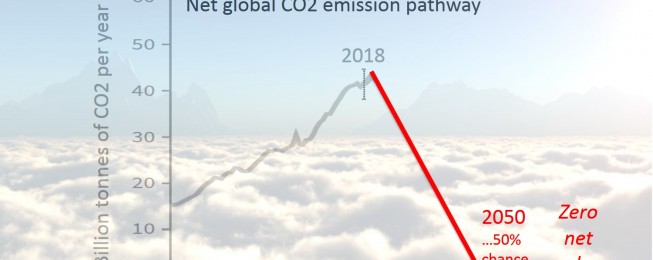Ofgem: RIIO-2 sector specific methodology consultation
Submission from the Energy Policy Group, University of Exeter
Catherine Mitchell, Rebecca Willis, Richard Hoggett, Richard Lowes, Rachel Bray, Helen Poulter and Jess Britton
Section 1: Introduction and Summary
The Energy Policy Group (EPG) of the University of Exeter is pleased to give our comments on Ofgem’s RIIO2 Sector Specific Methodology (SSM). The EPG has previously given its comments on Ofgem’s RIIO Framework Consultation and has written various blogs pressing for more ambition with respect to RIIO2’s environmental output requirements. We have also argued that we find the RIIO regulatory separation from network charging to be destructive for whole system outcomes and cost effective competition. We think that the network charging regulatory process should be ended and incorporated within the RIIO process.
Given the pace of innovation in energy systems, and the challenge of rapid decarbonisation to meet the Paris climate goals, IGov believes that there is a need for a shift in energy governance to steer a transformation to an integrated, socially just, zero-carbon energy system over the coming decades. With regard to Ofgem, there are two levels of change:
First, there is much that Ofgem can do, given its existing duties and remit, to support this transformation. As we outline below, we do not think that the RIIO process as currently proposed will be sufficient to drive the necessary changes and support innovation in the sector. We recommend changes to the process and to the working practices of Ofgem, to move its practices into line with wider energy goals, particularly carbon reduction.
Second, IGov argues that wider reform to the structures of energy governance is required. Our evidence shows the need for a new institution, which we have provisionally named the Energy Transformation Commission, to act as an enabler and co-ordinator, enabling all energy system actors to implement the high-level energy and climate goals set by government. In Section 6 below, we set out this proposed approach.
For the purpose of this consultation, we will limit much of our commentary to the first of these changes, i.e. we will address what Ofgem can do, given its existing duties and remit. However, we will also address the second point, as we believe changes at both these levels are required.
With regard to the SSM, the document sets out much we agree with in terms of high levels goals for RIIO2. However, the SSM, and its multiple supporting documents, are very light on detail. Since the ‘devil is in the detail’ it is hard for us to know whether these high level goals will carry through in to implementation. See Section 3 below for details of this.
Our key concern is the lack of ambition within the SSM, and its attendant publications, with respect to the climate change. The Committee on Climate Change (CCC) has set out the UK’s carbon budgets, necessary for achieving the UK’s emission reduction targets. More recently, at the request of government, the CCC is considering whether to recommend that the UK adopts a goal of net zero carbon emissions by 2050, in line with the Paris Agreement. This followed the publication by the IPCC of a Special Report which highlighted the global importance of limiting warming to 1.5 oC, this sets out in crystal clarity the need for a major and immediate low-carbon transition across energy, land, industrial, urban and other systems, technologies and geographies; requiring a halving of global annual emissions by 2030 and net zero carbon emissions by 2050. The next full Assessment Report from the IPPC, AR6 will be published in 2021. As such, we in GB can expect that our climate change targets will, if anything, become more stringent. To meet such targets will require a significant rate of change increase and the energy sector and the way it is regulated will be central to this.
The RIIO2 process, as discussed in the SSM, takes us up to 2025. The SSM does not include RIIO2 for electricity distribution – which is set to last from 2023-2028. The RIIO2 agreement is therefore an essential dimension of transforming to a sustainable, equitable and secure energy system. The combined lack of ambition within RIIO2 for decarbonisation and the absence of a clear framework of how RIIO fits in to the wider government policy with respect to the environment is a severe weakness which we hope will be addressed in the next version of Ofgem’s RIIO documents.
You can read the full submission here: Exeter EPG response to Ofgem RIIO-2 sector specific methodology consultation – March 2019
Image source: Jeremy Leggett
Related Posts
« Previous Primer – New York State REV Briefing: Enabling the transformation of the energy system Next »







